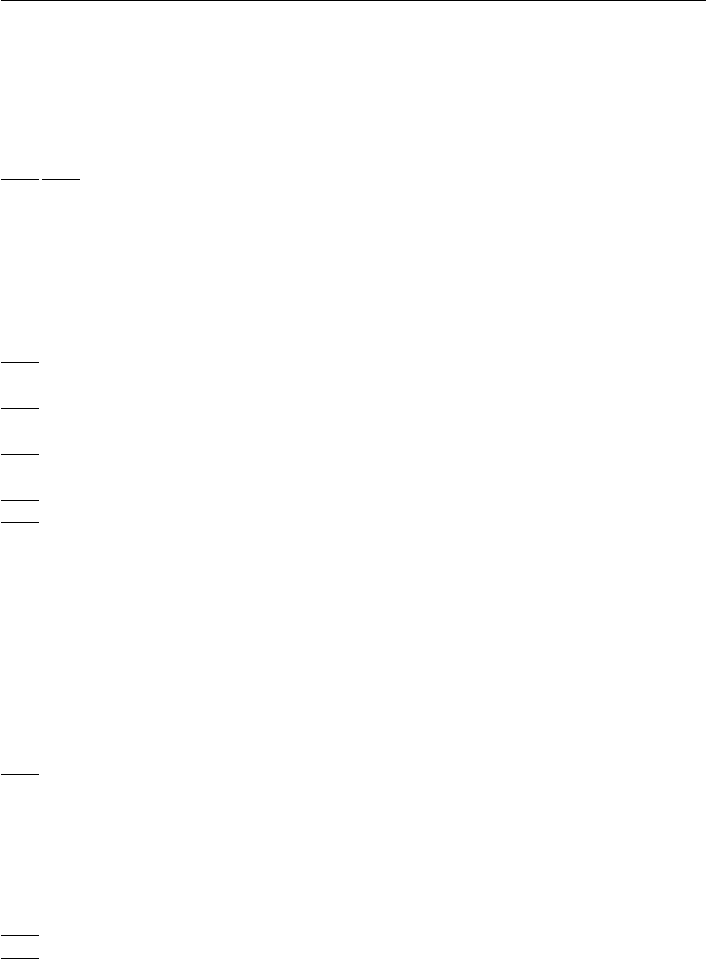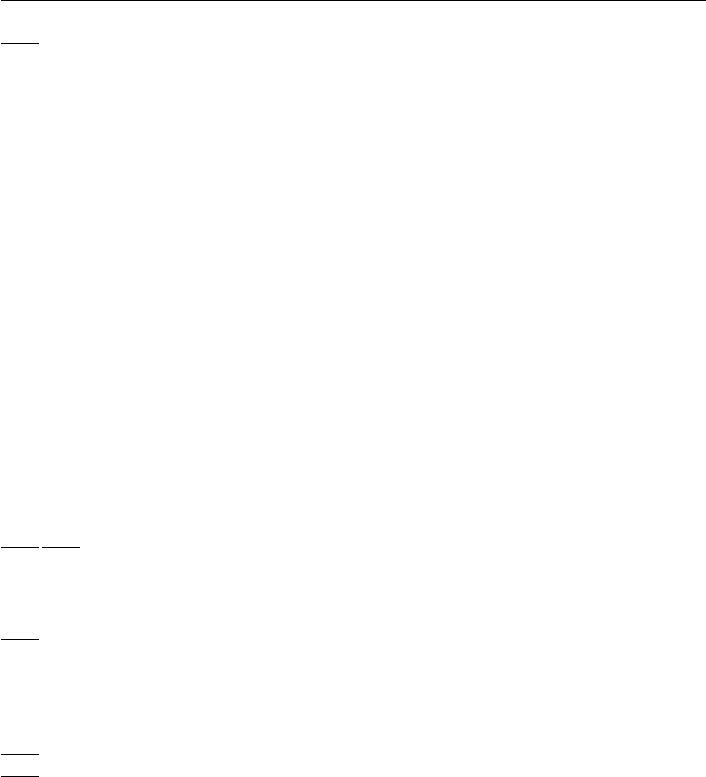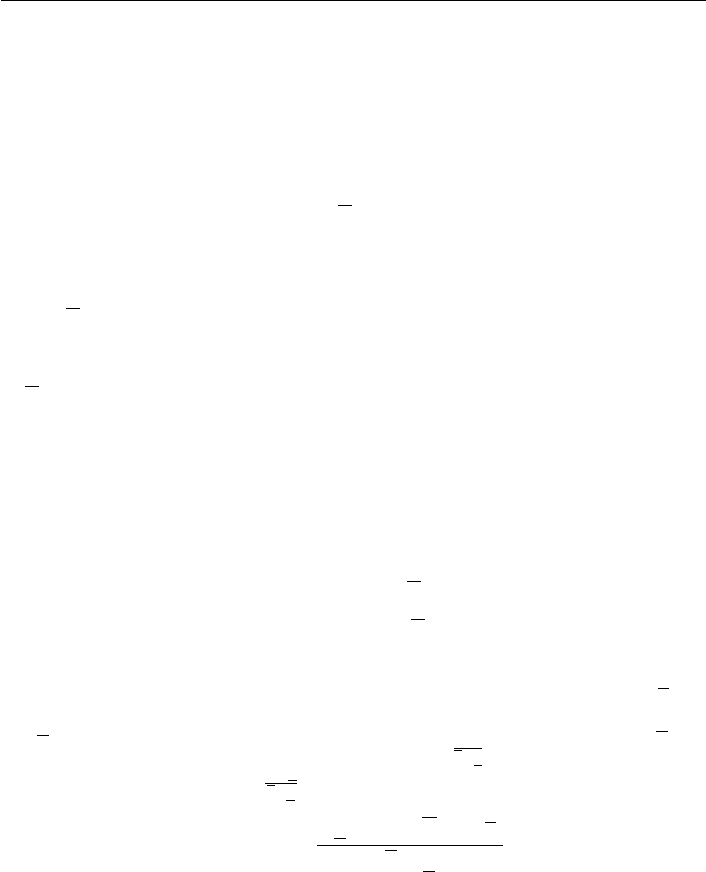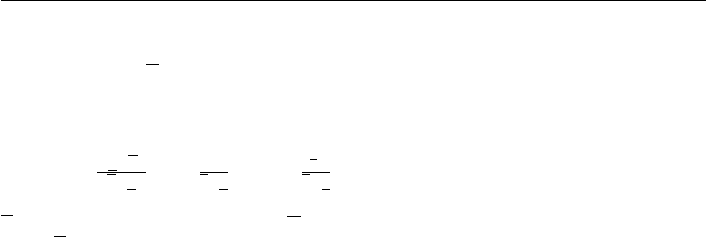Weingast B.R., Wittman D. The Oxford Handbook of Political Economy
Подождите немного. Документ загружается.


562 political-economic cycles
Downs,A.1957. An Economic Theory of Democracy.NewYork:HarperandRow.
Drazen,A.2001. The political business cycle after 25 years. NBER Macroeconomics Annual, 15:
75–117.
Electoral Studies 2000.Vol.19.
Ellis,C.J.,andThoma,M.A.1991.Partisaneffects in economies with variable electoral terms.
JournalofMoney,Credit,andBanking, 23: 728–41.
1995. The implications for an open economy of partisan business cycles. European
Journal of Political Economy, 11: 635–51.
Fair,R.1978.Theeffect of economic events on votes for president. Review of Economics and
Statistics, 60: 159–72.
Faust,J.,andIrons,J.1999. Money, politics, and the post-war business cycle. Journal of
Monetary Economics, 43: 61–89.
Franzese,R.J.1999. Partially independent central banks, politically responsive governments,
and inflation. American Journal of Political Science, 43: 681–706.
2000.Bookreview:Political Cycles and the Macroeconomy. Journal of Policy Analysis
Management, 19: 501–9.
2002a. Electoral and partisan cycles in economic policies and outcomes. Annual Reviews
of Political Science, 5: 369–421.
2002b. Macroeconomic Policies of Developed Democracies. Cambridge: Cambridge Univer-
sity Press.
2003. Multiple hands on the wheel. Political Analysis, 11: 445–74.
2005. Fiscal policy with multiple policymakers: veto actors and deadlock; collective action
and common pools; bargaining and compromise. Forthcoming in Veto Actor Analysis,ed.
H. Magara.
Gallagher,M.,Laver,M.,andMair,P.1995. Representative Government in Modern Europe,
2nd edn. New York: McGraw-Hill.
Garfinkel,M.,andGlazer,A.1994. Does electoral uncertainty cause economic fluctuations?
American Economic Review, 84: 169–73.
Goodhart,L.M.2000. Political institutions, elections, and policy choices. Thesis, Harvard
University.
Hallerberg,M.,Vinhas de Souza, L., and Clark,W.R.2002. Political business cycles in
EU accession countries. European Union Politics, 3: 231–50.
and von Hagen,J.1998. Electoral institutions and the budget process. Pp. 65–
94 in Democracy, Decentralisation and Deficits in Latin America, ed. K. Fukasaku and
R. Hausmann. Paris: OECD.
Heckelman,J.C.2001. Partisan business cycles under variable election dates. Journal of
Macroeconomics, 23: 261–75.
Hibbs,D.1977. Political parties and macroeconomic policy. American Political Science Review,
71: 1467–87.
1987a. The American Political Economy. Cambridge, Mass.: Harvard University Press.
1987b. The Political Economy of Industrial Democracies. Cambridge, Mass.: Harvard Uni-
versity Press.
Hicks,A.M.,andSwank,D.H.1992. Politics, institutions, and welfare spending in industri-
alized democracies, 1960–1992. American Political Science Review, 86: 658–74.
Hotelling,H.1929. Stability in competition. Economic Journal, 39: 41–57.
Imbeau, L., Petry,F.,andLamari,M.2001. Left–right party ideology and government poli-
cies. European Journal of Political Research, 40: 1–29.
Ito,T.1990. The timing of elections and political business cycles in Japan. Journal of Asian
Economy, 1: 135–56.

robert j. franzese, jr. & karen long jusko 563
and Park,J.H.1988. Political business cycles in the parliamentary system. Economic
Letters, 27: 233–8.
Klein,M.W.1996. Elections and the duration of US business cycles. Journal of Money, Credit,
and Banking, 28: 84–101.
Kramer,G.1971. Short-term fluctuations in US voting behavior. American Political Science
Review, 65: 131–43.
Lambertini,L.2003. Are budget deficits used strategically? Boston College Dept. of Eco-
nomics, Boston College Working Papers in Economics 578 (forthcoming in Economics and
Politics).
Lewis-Beck,M.1988. Economics and Elections. Ann Arbor: University of Michigan Press.
Madsen,H.1980. Electoral outcomes and macroeconomic policies. Pp. 15–46 in Models of
Political Economy, ed. P. Whitley. Beverly Hills, Calif.: Sage.
Mani,A.,andMukand,S.2000. Democracy and visibility. Unpublished manuscript, Vander-
bilt University.
Nordhaus,W.1975. The political business cycle. Review of Economic Studies, 42: 169–90.
Oatley,T.1999. How constraining is capital mobility? American Journal of Political Science
,
43: 1003–27.
Paldam,M.1989. Testing Hibbs’ theory of partisan cycles. Aarhus University working paper.
Perotti,R.,andKontopoulous,Y.1998. Fragmented fiscal policy. NBER-ZEI Conference,
Bonn.
Persson,T.,andTabellini,G.1990. Macroeconomic Policy, Credibility and Politics.London:
Harwood Academic.
2000. Political Economics. Cambridge, Mass.: MIT Press.
Pomper,G.M.1971. Elections in America. New York: Dodd, Mead.
Powell,G.B.2000. Elections as Instruments of Democracy. Cambridge, Mass.: Harvard Uni-
versity Press.
Whitten,G.D.1993. A cross-national analysis of economic voting. American Journal of
Political Science, 37: 391–414.
Roemer,J.1992. A theory of class differentatiated politics in an electoral democracy. Working
Paper 384, Dept. of Economics, University of California, Davis.
Rogoff,K.1988. Comment. NBER Macroeconomics Annual, 3: 61–3.
1990. Equilibrium political budget cycles. American Economy Review, 80: 21–36.
and Sibert,A.1988. Elections and macroeconomic policy cycles. Review of Economic
Studies, 55: 1–16.
Rose,R.1980. Do Parties Make a Difference? Chatham, NJ: Chatham House.
Roubini,N.,andSachs,J.1989. Government spending and budget deficits in the industrial
countries. Economic Policy, 8: 99–132.
Scheve,T.,andTomz,M.1999. Electoral surprise and the midterm loss in US congressional
elections. British Journal of Political Science, 29: 507–21.
Schneider F., an d F rey,B.S.1988. Politico-economic models of macroeconomic policy.
Pp. 239–75 in Political Business Cycles, ed. T. D. Willett. Durham, NC: Duke University Press.
Schultz,K.A.1995. The politics of the political business cycle. British Journal of Political
Science, 25: 79–99.
Sheffrin,S.1989. Evaluating rational partisan business cycle theory. Economics and Politics,
1: 239–59.
Shi,M.,andSvensson,J.
2001. Conditional political budget cycles. Working paper, University
of Wisconsin and IIES, Stockholm University.
Smith,A.1996. Endogenous election timing in majoritarian parliamentary systems. Economics
and Politics, 8: 85–110.

564 political-economic cycles
2000. Election timing in majoritarian parliaments. Paper presented at APSA Annual
Meetings.
Tsebelis,G.2002. Veto P laye rs. Princeton, NJ: Princeton University Press.
Tufte,E.1975. Determinants of the outcomes of midterm congressional elections. American
Political Science Review, 69: 812–26.
1978. Political Control of the Economy. Princeton, NJ: Princeton University Press.
Wittman,D.1977. Candidates with policy preferences: a dynamic model. Joumal of Economic
Theory, 14: 180–9.
Wright,G.1974. The political economy of New-Deal spending. Review of Economics and
Statistics, 56: 30–9.
chapter 31
..............................................................
VOTING AND THE
MACROECONOMY
..............................................................
douglas a. hibbs, jr.
Thepeoplehavebeenpromisedmorethancanbepromised;theyhavebeen
given hopes that it will be impossible to realize ...The expenses of the new
regime will actually be heavier than the old. And in the last analysis the
people will judge the revolution by this fact alone—does it take more or
less money? Are they better off?Dotheyhavemorework?Andisthatwork
better paid?
(Mirabeau [Honoré Gabriel Riquetti], 1791)
All Political history shows that the standing of the Government and its
ability to hold the confidence of the electorate at a General Election depend
on the success of its economic policy.
(Harold Wilson, 1968)
1 Introduction
.............................................................................
The proposition that support enjoyed by rulers among the ruled is decisively affected
by economic conditions undoubtedly has been true since the formation of the first
political communities. Empirical studies of systematic connections of voting and
∗
I am grateful to Nicola Acocella, Larry Bartels, John Ferejohn, Morris Fiorina, and Dennis Mueller
for comments on drafts of this chapter.

566 voting and the macroeconomy
the macroeconomy began to appear in the mid-1920s,
1
though by today’s standards
the early research applied quite casual statistical techniques, typically lacked well-
articulated falsifiable hypotheses, and was not underpinned by any recognizable
theoretical framework.
The landmark event in the modern history of research on macroeconomic condi-
tions and election outcomes is Gerald Kramer’s 1971 article on US voting behavior.
2
Kramer’s work was inspired by the broader framework set out by Anthony Downs
in An Economic Theory of Democracy (1957)—by a wide margin the most important
work on the political economy of electoral democracies published in the twentieth
century. Kramer proposed a clear model for macroeconomic voting, and its empirical
predictions were subject to formal econometric tests. No one had done this before.
Like Downs, Kramer viewed parties as alternative governing teams. Voters were pre-
sumed to be rational, self-interested, and future-oriented actors for whom acquiring
and analyzing massive amounts of potentially relevant information was costly and
impractical. Instead, he assumed that voters adopt a simple, efficient decision rule: if
the incumbent’s performance is “satisfactory,” vote to retain the incumbent party; if
not, vote for the opposition.
3
Kramer calibrated “satisfactory” performance by favorable differences between
realized and expected macroeconomic outcomes at the election year, on the assump-
tion that the best readily available guide to future well-being was performance
over the most recent year. Expected performance was in turn assumed to be
given by outcomes realized the previous year. Accordingly, the macroeconomic
arguments of Kramer’s vote equations were election year growth rates of per
capita real personal income and consumer prices, and the election year change in
the unemployment rate. The dependent variable was the aggregate congressional
vote share going to the president’s party in non-presidential election years, and
a weighted average of congressional and presidential vote shares in presidential
election years, with the weights being a function of the estimated spillover from
(especially strong or weak) presidential candidates to congressional candidates of
the president’s party.
4
Kramer’s regression experiments showed that the growth of
per capita real personal income exerted robust positive effects on aggregate vot-
ing outcomes from 1896 to 1964. In the presence of real income growth rates,
inflation and changes in unemployment appeared to have little or no electoral
¹SeeMonroe1979 for a review of much of the early research. Reviews of research since 1970 include
Nannestad and Paldam 1994 and Lewis-Beck and Stegmaier 2000. The most comprehensive recent guide
to research on nearly all aspects of macro political economy and public choice is undoubtedly Mueller
2003. Another outstanding treatise, which covers a broad range of macro political economy and is
lodged within a specific yet quite flexible analytical framework, is Drazen 2000.Gärtner1994 masterfully
reviews a narrower zone of the macro political economy field with exceptional pedagogical flair.
² Infactanefficient way to track the growth of the literature is to track citations to Kramer’s 1971
paper.
³Yearslater,Ferejohn(1986, 1999) developed some micro-foundations for such simple voting rules in
the context of pure retrospective voting theory. I discuss this work in Section 4.
⁴ All by itself, the spillover mechanism was a significant contribution to voting theory, and it spawned
a whole branch of research on presidential “coattails” which falls outside the scope of this chapter.

douglas a. hibbs, jr. 567
importance—a result that by and large has been sustained over a generation of
subsequent empirical research.
5
Key features of Kramer’s model were part of the maintained hypothesis. He sup-
plied no evidence that the stochastic properties of macroeconomic variables sup-
ported his assumption that the best forecast of future innovations to inflation and
real income growth was current growth rates, or that the best forecast of innovations
to unemployment was current changes in the rate. Nor did he undertake any tests
supporting the assumption that economic voting was forward looking (prospective),
as opposed to being purely retrospective, with past performance yielding electoral
rewards and punishments regardless of the implications of past outcomes for the
future. Furthermore, Kramer provided no mechanism mapping the behavior of indi-
vidual, self-interested voters applying simple decision rules onto the aggregate vote
shares populating his regression experiments. Treatment of those issues came during
the decades afterward, on the back of Kramer’s seminal contribution. Much of this
chapter is a tour of the more important developments.
2 Aggregate Vote Shares and
Individual Electoral Choices
.............................................................................
The second major event in the emergence of sophisticated empirical analysis of voting
and the macroeconomy is Ray Fair’s famous 1978 article on economic voting for US
presidents. Like Kramer, Fair adopted the Downsian environment of rational, self-
interested voters whose electoral behavior is driven by maximization of expected
future utility under the available political alternatives. Fair experimented with vari-
ous combinations of within-term macroeconomic outcomes and outcomes observed
during previous administrations of both the current incumbent and current oppo-
sition parties, and he concluded (as many others have since) that only within-term
macroeconomic conditions affected voting. Fair revised his equations sequentially
from one presidential election to the next in a quite openly ad hoc fashion, and
from the start offered no explanation of how the various statistically significant, pre-
election output growth and inflation variables in his regressions could rationally
be informative about voters’ “highest expected future utility.” Perhaps Fair’s most
enduring contribution to applied macroeconomic voting theory was spelling out the
strong assumptions necessary to get from individual, utility-maximizing voters to a
linear aggregate voting equation.
⁵ Kramer’s estimates implied a 4 to 5 percentage point rise (decline) in the vote share for each 1
percentage point rise (decline) in the real income growth rate. Hibbs 2000 obtained nearly identical
estimates of the effect of real income growth rates (sustained over the entire term, rather than just the
election year) on aggregate postwar presidential voting outcomes—a consistency of results displaced by
one branch of government, by twenty-nine years of research time, and by more than a half-century of
electoral time from Kramer’s ground-breaking paper.

568 voting and the macroeconomy
Fair’s derivation may be described as follows. Let U
I
it
denote voter i’s expected
future utility under the incumbent party (political bloc) at election period t,andlet
U
O
it
be the corresponding expected utility under the opposition party (political bloc).
Let V
it
equal 1.0ifvoteri votes for the incumbent, and equal 0.0 otherwise. Utilities
are determined by linear equations of the form
U
I
it
= X
t
b + ı
I
it
U
O
it
= Xb + ı
O
it
(1)
Cov
X,v
I,O
=0
where X
t
denotes a matrix of variables observed at periods during the incumbent’s
tenure,
X is a matrix of constants (the implicit standards against which the incum-
bent is evaluated), b is the associated vector of parameters, and ı
I,O
it
are random
events affecting utilities at each election that are unobserved by the investigator.
X,
X,andb are common to voters.
6
Individual voting choices are determined by the
party/candidate delivering the highest utility:
V
it
=
1ifU
I
it
U
O
it
0ifU
I
it
< U
O
it
.
(2)
Letting ı
it
=
ı
O
it
−ı
I
it
, the probability P of observing a vote for the incumbent is
therefore
P
(
V
it
=1
)
= P
X
t
−X
b
ı
it
= F
t
X
t
−X
b
(3)
where F
t
is the cumulative distribution function of v
i
at any election. Linearity of an
aggregate voting equation is achieved by assuming the deviations
˜
v
i
=
(
ı
i
|t − v
t
)
to
be evenly distributed across voters at each election between some constants, say d
< 0
and
d > 0, with uniform probability density f
t
(
˜
v
i
)
=
1
d−d
and associated cumulative
distribution function F
t
(
˜
v
i
)
=
˜
v
i
−d
d−d
.
7
Thevoteprobabilitiesarethen
P
(
V
it
=1
)
=
−d
+
X
t
−X
b − v
t
d −d
. (4)
⁶ For a K dimensional matrix of X
s, X
t
b should then be understood to represent
X
t
b =
K
k=1
j
b
kj
X
kt−j
.
Fixing b over i (i.e. assuming that all voters react to macroeconomic outcomes and other variables in
the same way) is of course an especially strong constraint. Alesina, Londregan, and Rosenthal 1993,
however, show how imposing some regularity conditions on the distribution of individual sensitivities to
X may give this assumption a degree of plausibility.
⁷ The assumption of a uniform or even distribution is not all that restrictive in most settings. The
distribution functions of more plausible bell-shaped alternatives, such as the normal and logistic, are
quite flat over aggregate voting outcomes in the 35%to65% range, which encompasses most election
outcomes.

douglas a. hibbs, jr. 569
Taking averages over N voters (with N large enough to approximate an “infinity”
of votes) to find
1
N
N
i=1
V
it
≡ V
t
, yields the aggregate, linear voting function most
commonly used in empirical analysis
V
t
= · + X
t
β + u
t
(5)
where · =
−d−Xb
d−d
, β =
b
d−d
, u
t
= −
v
t
d−d
∼ white-noise. Note that if the upper and
lower bounds of the distribution of electoral shocks are equal in absolute value, i.e.
d = −d, then the effects of
X
t
−X
would yield deviations of V
t
from an expected
vote share of 1/2.
3 Two Views of Economic Voting:
Prospective and Retrospective
.............................................................................
Macroeconomic voting divides naturally into two main views defined by voters’ time
horizons: prospective and retrospective. In the prospective view, the expected future
relative performance of contestants for office is all that matters. Prospective valuation
is akin to the pricing of financial assets in efficient markets: The parties’ stock of
votes at elections (current asset values) is determined completely by rationally formed
expectations of future benefits, calibrated in units of voter utility. Hence electoral
choice is a political investment in the future to which a party’s (candidate’s, political
bloc’s) past performance per se has no relevance. As Downs put it: “Each citizen ...
votes for the party he believes will provide him with higher utility than any other
party during the coming electoral period” (1957, 38).
By contrast, under pure retrospective voting, elections are referenda on the gov-
erning party’s performance in office. Voters reward “good” performance and punish
“bad” performance. In the words of the original proponent of retrospective voting
assessments, V. O. Key: “Voters may reject what they have known; or they may
approve what they have known. They are not likely to be attracted in great numbers by
promises of the novel or unknown” (1966, 61). For retrospective voters, bygones are
never bygones (as they are under a purely forward-looking orientation), but rather
comprise the driving force of political valuation and electoral choice.
8
In the generation since the rational expectations revolution in economic theory,
with its strong and often compelling emphasis on forward-looking behavior, pure
retrospective voting frequently has been described as naive and irrational. Those char-
acterizations have a certain normative, even messianic quality about them, but from
a positive point of view are misguided. Building on a germinal paper of Barro (1973),
Ferejohn (1986) constructed a well-known micro-founded model of Key’s main ar-
guments, with aggregate implications that have received much stronger support in
⁸ See Fiorina 1981 for a comprehensive treatment of the history, mechanics, and survey-based
evidence concerning retrospective voting in the United States.

570 voting and the macroeconomy
data than prospective voting models. The central idea is that the electorate stands in
a principal–agent relation to the incumbent party. Voters settle up with their agents
by evaluating performance ex post for much the same reason—moral hazard—that
insurance premiums are typically experience rated and that compensation of top cor-
porate executives is generally heavily dependent upon past increases in share prices.
Under pure retrospective valuation, promises to do better in the future are discounted
completely, and exert no influence on voting choices. Instead, retrospective theory
emphasizes the efficiency of inducing governing parties always to do their best in
certain knowledge that voting settlements will be based on observed outcomes over
the term, no matter how attractive are (inherently unenforceable) commitments to
improve in the future. Opposition parties merely function as replacements on occa-
sions when incumbents do not satisfy a fixed, attainable standard of performance.
In order for the underlying micro model to pass through, voters must react
to macroeconomic performance, rather than to individual benefits (“sociotropic”
voting), which in turn presumes implicit coordination among voters (and perhaps
among party agents as well) in application of collectivist or utilitarian valuation
standards.
9
If voting behavior were individualistic (“egotropic”), incumbents could
pursue a divide and rule strategy by exploiting distributive conflicts in the electorate,
and thereby mitigate, or perhaps avoid completely, the discipline of having to satisfy
a minimal standard of macroeconomic performance augmenting aggregate welfare.
A further implication of a principal–agent motivation of retrospective voting, though
not a strict requirement, is that the electorate should evaluate performance over the
incumbent’s entire term of office, with little or no backward time discounting of
performance outcomes.
4 Empirical Implementation
.............................................................................
Consider a mandate period of duration T. A fairly general model encompassing both
retrospective and prospective voting motivations would look like
V
t
= · +
K
k=1
T−1
j=0
Ï
kj
X
k, t−j
+ E
t
⎛
⎝
K
k=1
T
j=1
ˆ
kj
X
k, t+ j
⎞
⎠
+ u
t
u
t
∼ white-noise
(6)
where E
t
denotes expectations conditioned on voters’ time t information set.
10
ˆ
k
=0
yields pure retrospective voting; Ï
k
= 0 implies that voting is purely prospective.
11
For
⁹ Ferejohn 1999 elaborates upon his initial model and sketches a theory of how such coordination
might arise among the constituent agents of parties, as well as among voters.
¹⁰ The lag-lead sequences in (6) are based on the timing convention that elections yielding
V
t
, V
t+T
,...occur after the realizations of outcomes X
k,t
, X
k,t+T
...
¹¹ In systems with variable election dates, one cannot define the prospective time horizon in closed
form. I arm-wave away the complication of endogenous election dates. Prospective voters could take

douglas a. hibbs, jr. 571
(6) to be operational we need to constrain the lag and lead parameters. The natural
assumption for the prospective component is to impose a present discounted value
with a constant rate of time preference. Stigler (1973) proposed the same approach to
constraining retrospective evaluations. (See Section 4.3.) Simplified in those ways, the
general model is:
V
t
= · +
K
k=1
T−1
j=0
Ï
k
Î
j
X
k, t−j
+ E
t
⎛
⎝
K
k=1
T
j=1
ˆ
k
‰
j
X
k, t+ j
⎞
⎠
+ u
t
, (7)
where Î, ‰ ∈ [0, 1] are one-period discount factors.
4.1 Pure Prospective Voting
Consider first pure forward-looking, prospective voting (Ï
k
= 0). Voting outcomes in
this case are driven by:
V
t
= · + E
t
⎛
⎝
K
k=1
T
j=1
ˆ
k
‰
j
X
k, t+ j
⎞
⎠
+ u
t
. (8)
Empirical analysis of forward voting requires specification of how expectations are
formed. The forecasting workhorses favored by time series specialists for most log real
macroeconomic variables are random walks with drift and low-order autoregressions
of first differences.
12
Alternatively, one could assume that expectations are based on
forecasts from unconstrained multivariate autoregressions. Either way, using pre-
election histories to forecast post-election realizations of relevant macroeconomic
variables yields prospective voting equations that are observationally equivalent to
retrospective equations.
13
Moreover, taking forecasts of future outcomes from past
realizations of relevant variables implies that voters have no way of distinguishing, or
make no attempt to distinguish, macroeconomic developments owing to competent,
effective governance from what likely would occur in a neutral policy setting—
a theoretical deficiency that was overcome by so-called “rational retrospective”
models.
account of the consequences of performance during the post-election term for performance during
periods afterward. (If macroeconomic variables have unit roots, then performance shocks persist
indefinitely, and a rational voter’s time horizon might accordingly span the indefinite future.) In
analogous fashion, retrospective voters might look further back than the most recent term when forming
electoral valuations, on the argument that current support can be viewed as a “political capital stock” of
parties that accumulates over long periods of time. Fiorina 1977, 1981,andHibbs1982b advanced models
with this feature.
As the discussion ahead should make clear, the first possibility is observationally equivalent to a
one-term-ahead prospective time horizon. The retrospective possibility, however, is testable, and in the
case of macroeconomic voting for US presidents it has been rejected in at least two studies: Hibbs 2000
and Peltzman 1990.
¹² See, for example, Mankiw and Shapiro 1985; Kormendi and Meguire 1990; Stock and Watson 2003.
¹³ This point was developed by Blinder 1985 in his comments on Kirchgässner 1985.
